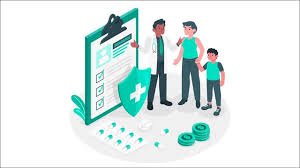What Every Indian Household Needs in a Health Emergency?
August 19, 2025 | Tuesday | Reports/white papers
Health emergencies can strike without warning. It might be a sudden illness, an accident, or a situation where urgent medical help is needed. The real question is: are we ready for it?
Every Indian household should have a simple yet effective system in place to face such moments with calm, clarity, and full confidence, without wasting time or feeling lost.
Why Preparedness Matters More Than Ever
In India, rising healthcare costs and overcrowded hospitals have made it more important than ever for families to be prepared for an emergency. No matter if you live in a metro or a small town, medical help may not be instantly accessible, and delays can make all the difference.
While government schemes and private health insurance plans in India are expanding, the responsibility to act fast still falls on the household. Having basic tools, documents, and a plan in place not only saves time but could save a life.
Preparing means being in control when it counts. Think of it as a family's defence system, ready to spring into action when urgency knocks. Let us explore the essentials that make all the difference.
The Basics of Health Emergency Preparedness for Homes
Health emergencies can be sudden and stressful, but having the right preparations at home can make a difference in managing the situation effectively. Here are the essential elements every household should have to face health emergencies with confidence and ease.
Start with a Home Medical Kit for Immediate Relief
A well-stocked medical kit is the first thing every home should have. It helps you handle minor injuries, sudden pain, or early symptoms without delay. It also buys you time until you can reach professional care.
Keep these items ready:
- Digital blood pressure monitor
- Cotton, bandages, and gauze
- Paracetamol and pain relief sprays
- Basic medicines for fever, cold, acidity, and allergies
- Specific medicines required for chronic conditions like asthma or diabetes
Place the kit in an easy-to-access spot. Check expiry dates every few months.
Maintain a Digital and Physical Medical File
During a medical emergency, the last thing you want is to look for old prescriptions, reports, or insurance details. Keeping everything in one place saves time and ensures quicker decisions.
Create a dedicated folder for:
- Health insurance policy documents
- Medical history of each family member
- Recent prescriptions and test results
- Contact details of your family doctor
Use both a physical folder and a digital backup. Store the soft copies in cloud storage and give access to a trusted family member.
Build a Quick-Access Emergency Contact Sheet
Time is everything during emergencies. A simple one-page sheet with important numbers can guide action even in panic. Keep one copy on your fridge, one in your wallet, and one in your phone.
Your emergency contact list should include:
- Nearby hospitals and private ambulance numbers
- Close relatives or neighbours
- Insurance helpline and claim support numbers
- Local pharmacy that delivers 24x7
This list helps even children or elderly family members know what to do.
Set up an Emergency Fund That's Easy to Use
An emergency fund helps you act without financial stress. Medical costs can arise before claims are processed or in situations not covered by insurance. Ideally, the fund should cover 3 to 6 months of household expenses.
You can keep that money in a savings account or a fixed deposit with quick withdrawal access. Avoid investing this money in high-risk or long-lock-in instruments. You can start small and grow the fund over time. The key is to keep it ready, separate, and easy to use.
Invest in a Comprehensive Health Insurance Plan
Medical costs are rising every year. Having a comprehensive health insurance plan lets you access the best care without worrying about bills.
When choosing a policy, look for:
- Wide hospital network for cashless treatment
- Coverage for hospitalisation, diagnostics, and post-care
- Shorter waiting periods for pre-existing conditions
- Daycare procedures included
- Annual health check-ups as part of the policy
For families seeking comprehensive protection, a floater plan covers everyone under one policy, making it more affordable and easier to manage. This flexibility is especially valuable when combining broad financial protection with specialised solutions, such as health insurance for parents.
In this way, you can ensure their medical needs are fulfilled without putting a strain on the family's savings. Choose an insurance provider that offers ease, speed, and reliable support. Online-first insurers are popular for their simple processes, quick claims, and responsive service.
You can upload documents easily and get help anytime. During emergencies, especially at odd hours or away from home, a smooth, hassle-free claim process offers valuable peace of mind.
Ensure Everyone Understands the Plan
Emergency planning is not only about documents and policies. It is also about making sure your family knows what to do.
Have regular family discussions where you explain:
- What's inside the medical file?
- Where is the insurance policy stored?
- How to access the emergency fund?
When everyone is aware, action is quicker and more effective.
Preparedness brings peace of mind. Taking a few essential steps now can make a lasting difference in how your household handles a health emergency. With thoughtful planning, timely access to care, and a clear understanding of what to do, you can protect both your finances and your family.
What you set up today will help your family respond with strength, calm, and confidence tomorrow.









